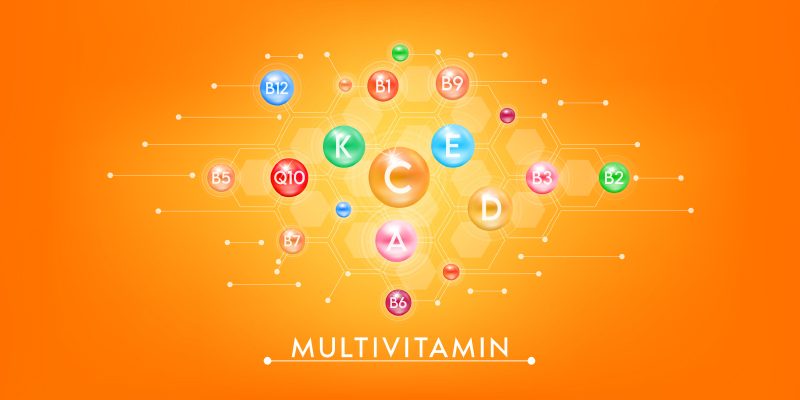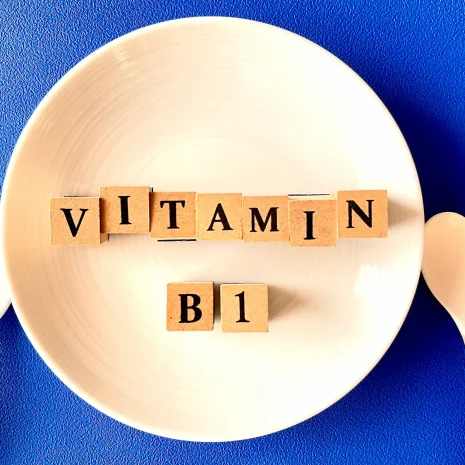What Are Multivitamins? Understanding Their Role in Nutritional Health
What are vitamins and minerals?
Vitamins and minerals are essential organic substances that the body needs to carry out its normal functions. Typically obtained from a balanced diet rich in fruits, vegetables, grains and proteins, these nutrients support various physiological processes.
A healthy eating routine can fulfil most of the body’s nutritional requirements. However, dietary supplements, particularly multivitamins, can provide crucial support for micronutrients that may not be consumed in sufficient quantities. Multivitamins play an important role in maintaining and enhancing health due to their diverse composition.
Are vitamin and mineral supplements necessary?
Dietary supplements serve multiple purposes, particularly when it comes to compensating for nutrients that may fall short in a person’s regular diet. Various factors can increase the need for multivitamins:
- Dietary Restrictions: Individuals with allergies, food intolerances or restrictions based on moral or religious convention may find it challenging to obtain necessary nutrients and can benefit from dietary supplements.
- Health Conditions: Certain illnesses or medical treatments may lead to a deficiency in specific vitamins and minerals, necessitating supplementation.
- Age and Life Stage: Different life stages, such as pregnancy, childhood and older adulthood, come with unique nutritional needs that multivitamins can help fulfil.
Who Should Consider Multivitamins?
Multivitamins can be beneficial for specific groups of individuals and can be tailored to meet different nutritional needs. Key beneficiary groups include:
- Individuals on Long-term Medications: Chronic medications can interfere with the body’s absorption or increase the depletion of vital nutrients, such as magnesium and calcium. Those taking medications should consult with a healthcare professional before starting supplementation.
- Those Experiencing Malabsorption: Conditions like coeliac disease or recovery from gastric bypass surgery can hinder nutrient absorption, making multivitamins essential.
- Health-Conscious Individuals: Many people choose multivitamins not just for replenishment but also as preventative measures against potential health issues. For instance, vitamins A and beta-carotene can support immune health and vision.
- People with Skin Conditions: Some vitamins such as vitamin C are vital for skin health, as they promote collagen synthesis and provide antioxidant benefits.
- Individuals with Lifestyle Limitations: Those who may not get enough sunlight exposure, particularly older adults, can suffer from vitamin D deficiency. Multivitamins containing vitamin D can help maintain bone health and muscle function.
Which vitamins are essential for pregnancy?
Pregnant individuals have unique nutritional demands and may require specific supplements. Health experts recommend starting folic acid supplements at least one month before conception and continuing through the first 12 weeks of pregnancy to prevent neural tube defects like spina bifida.
Additionally, based on individual health assessments, calcium, iron and omega-3 supplements may be beneficial during pregnancy. However, it is crucial to avoid high doses of any multivitamin and consult a healthcare provider for tailored advice.
What problems are caused by mineral and vitamin deficiencies?
Identifying signs of nutritional deficiencies can help individuals choose the right multivitamin to suit their needs. Common indicators include:
- Brittle Hair and Nails: Weakness in hair and nails may signal a biotin deficiency. Biotin, or vitamin B7, is important for energy metabolism, and its deficiency can also lead to fatigue and muscle cramps.
- Cracks Around the Mouth: Lesions or ulcers may be linked to deficiencies in iron and B vitamins.
- Hair Loss: This condition can stem from a lack of iron, zinc and certain B vitamins (B3 and B7), as well as essential fatty acids.
- Bleeding Gums: A lack of vitamin C can lead to gum bleeding and increased susceptibility to infections. Vitamin C is crucial for immune health and collagen production.
Other deficiency symptoms may include vision problems, skin conditions (like red spots or flaking) and restless leg syndrome, particularly in pregnant individuals due to low iron levels. Experts recommend multivitamin support both in preventing and addressing these conditions.
The Importance of Multivitamins
Understanding the roles of vitamins and minerals, along with recognising signs of deficiencies, empowers individuals to make informed choices about their nutritional health. Multivitamins can be a beneficial tool for maintaining well-being, especially for those with dietary restrictions, medical conditions or specific lifestyle factors that hinder adequate nutrient intake.
While multivitamins can offer valuable support for overall health, it is essential to recognize that a balanced diet should remain the cornerstone of nutritional well-being. Multivitamins are intended to be a complementary measure and should not be considered a substitute for a diverse and nutritious food intake.
Note: It is strongly advised that individuals consult a healthcare professional prior to initiating any supplement, particularly if they have existing health conditions, are taking prescribed medications, or are pregnant.








